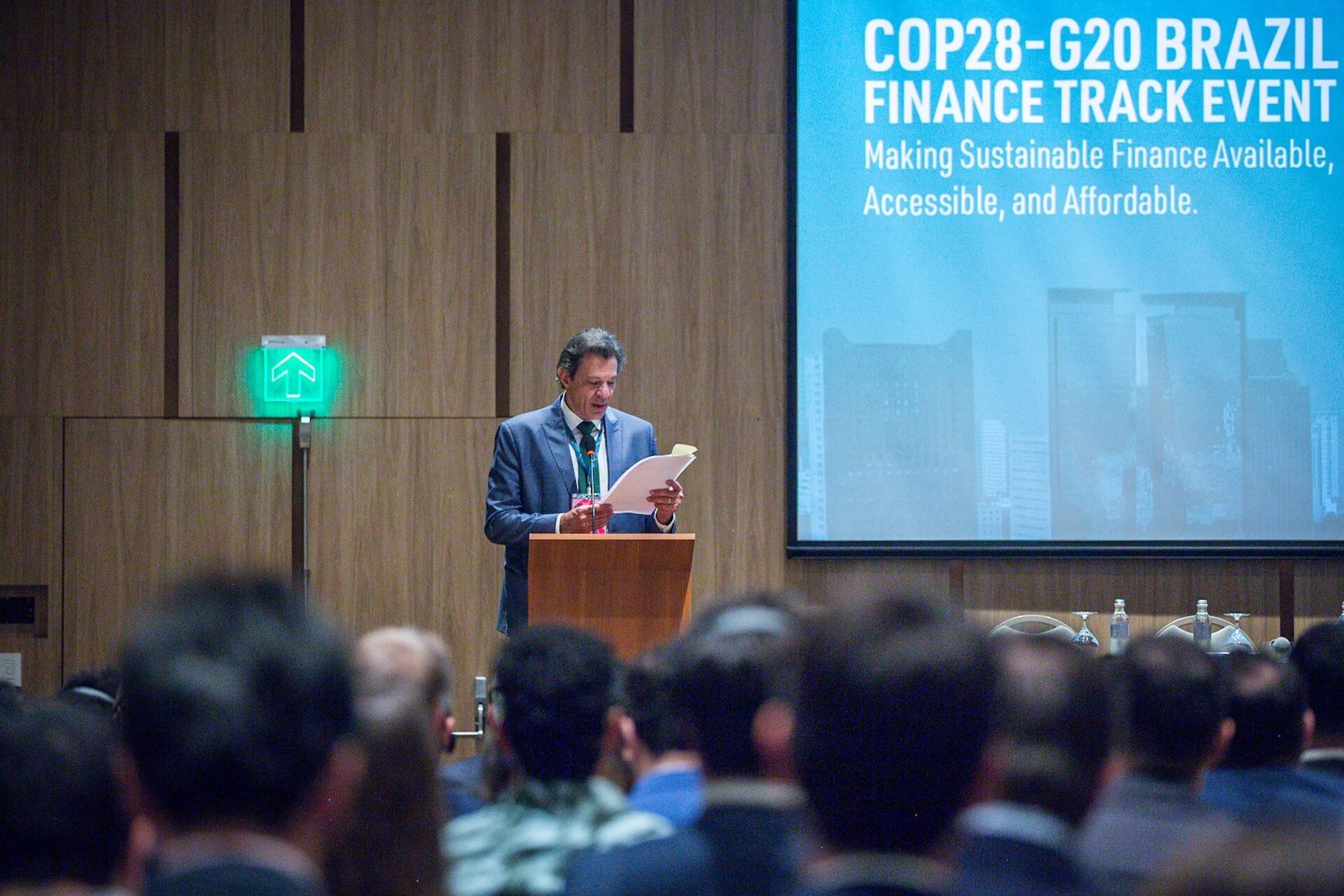In light of the G20, COP Troika strives to increase funding towards tackling the climate crisis
Representatives from the United Arab Emirates, Azerbaijan, and Brasil met in Rio to discuss urgent climate action. In line with Brasil's priorities at the G20, the COP Troika advocates the combined use of public and private resources to boost funding and tackle environmental disasters.

Representatives and experts from the official financial and environmental bodies of the United Arab Emirates, Azerbaijan, and Brasil met on Wednesday (24/7) in Rio de Janeiro to discuss global measures to respond to the climate crisis around the world, especially in developing countries. The countries are recognized as the Troika of the COP (Conference of the Parties to the United Nations Framework Convention on Climate Change) held in 2023, 2024, and 2025 respectively.
The debates took place in the light of the G20 Finance Track meetings and defended the use of public resources to boost private resources to tackle the climate crisis as fundamental and urgent, given the advance of environmental catastrophes that result in recurring humanitarian crises worldwide.
According to Fernando Haddad, Brasil's Finance Minister, the potential of public and private capital must be unlocked to drive the just transition to a resilient global economy. He points to the strengthening of development finance institutions as a solution to this challenge.
"These institutions play a crucial role in mobilizing resources, providing technical assistance, and mitigating risks in sustainable investment. By strengthening their capacities, they will be better prepared to support developing countries in their climate ambitions," Haddad pointed out.
Marina Silva, Brasil's minister for the Environment and Climate Change, calls on the G20 to lead by example in local measures to address local climate disasters. Silva pointed out that the group is responsible for 80% of greenhouse gas emissions and, to the same extent, of existing financial resources — and must, therefore, be engaged in addressing solutions to the extreme effects of the climate.
"The time has passed for us to be demanding of each other. This is the time to listen to established science and common sense on climate justice and just transition. To realize that developing countries need help and that developed countries must lead this race so that we can have a robust agenda for reparation, adaptation and, above all, transformation of our development models," argued the Brazilian minister.
G20 at the forefront of climate solutions
"Financing is the most important element of climate action," stressed Muhammed Al Hussaini, minister of Financial Relations of the United Arab Emirates, which hosted COP 28 in 2023. Hussaini indicated that the goals to prevent the climate crisis from worsening will require average and relative changes to guarantee more climate investments.
The Emirati minister pointed out that efforts to find climate finance put finance ministries on the path of leadership for the necessary change in the narrative about the economic viability of actions. To this end, he proposes that global groups like the G20 need to "provide solutions to our biggest challenges" and be leaders with solutions to reduce the risks of investments in the "hunt for development".
Samir Sharifov, Minister of Finance of Azerbaijan, the country that will host the COP in 2024, pointed out that developing countries and small islands, most affected by the extreme effects of the climate, urgently need to solve the crisis, which drives the need to increase the resources of the Multilateral Development Banks (MDBs).
According to Sharifov, meeting the financing needs of climate action around the world requires additional mobilization of resources within and outside the NQCG (New Quantified Collective Goal on Climate Finance), a financial target to establish a floor to help developing countries combat the disasters caused by the climate crisis.
"Progress on key global reforms has been very effective, such as the triple agenda on MDB reform, the sustainable finance roadmap, and the review of multilateral climate plans. We believe that the G20 will be able to start increasing the resource base of the Multilateral Development Banks for climate finance," he said.
The debate took place at the side event of the G20 Finance Track meetings "COP 28 - G20 Brasil: Making sustainable finance available, accessible and affordable", held on Wednesday evening, July 24, in Rio de Janeiro.